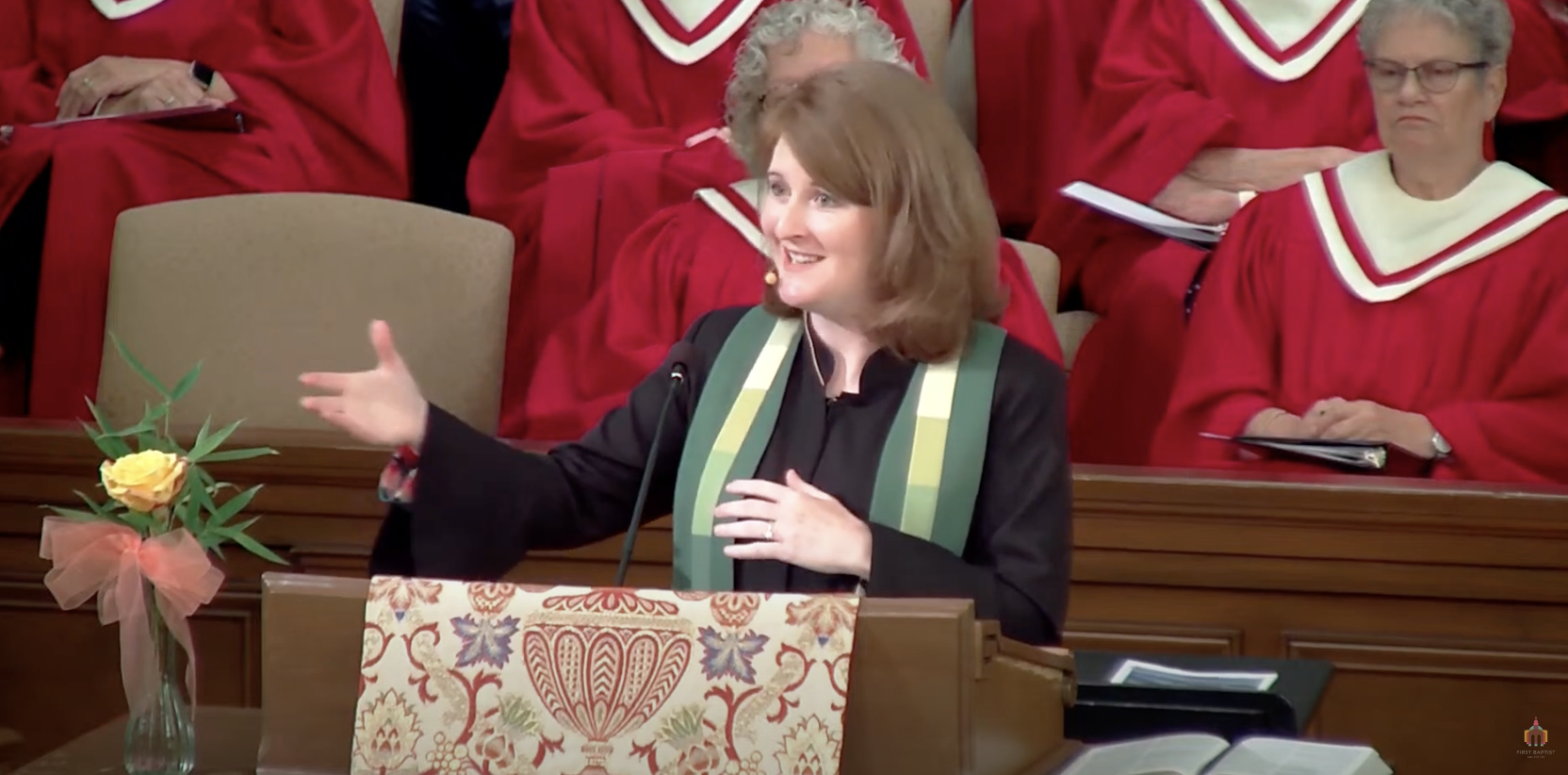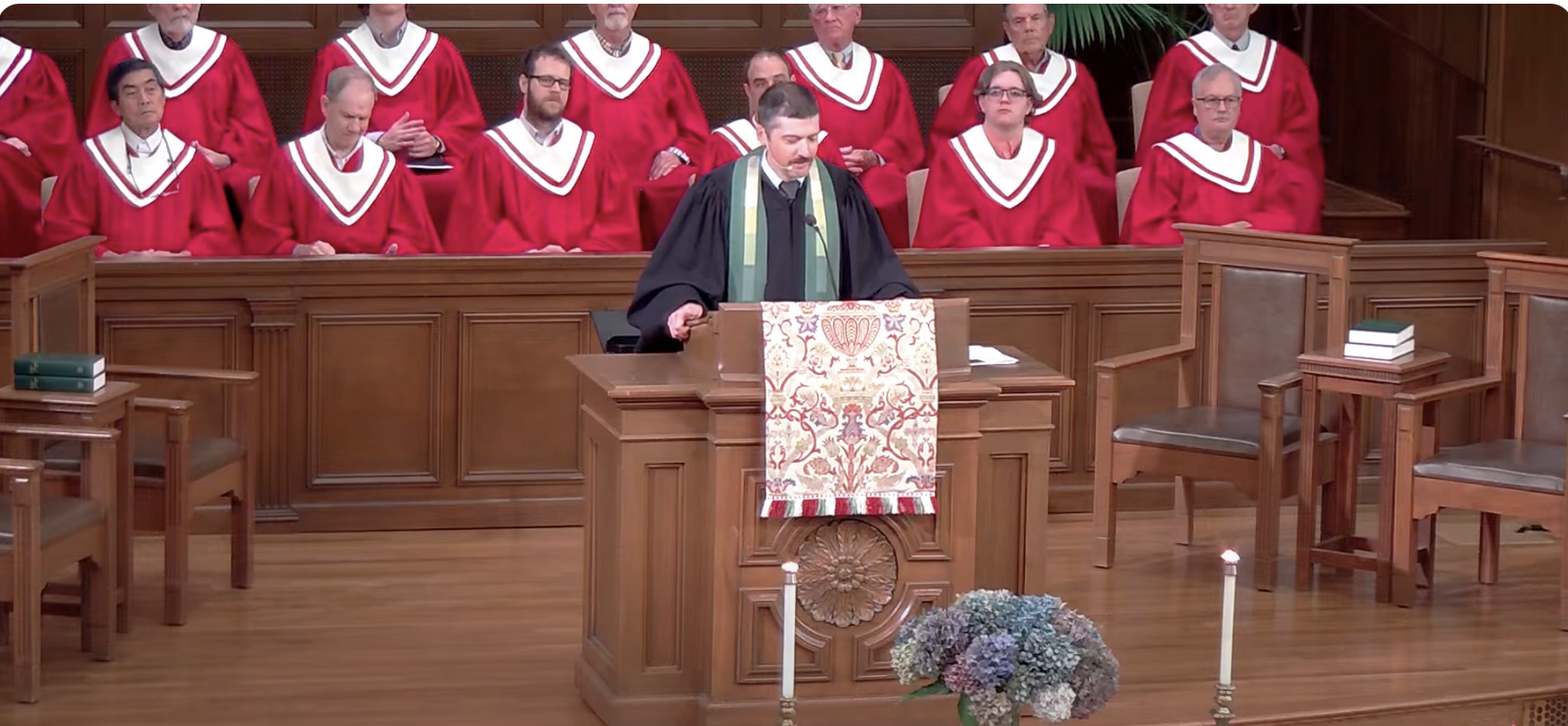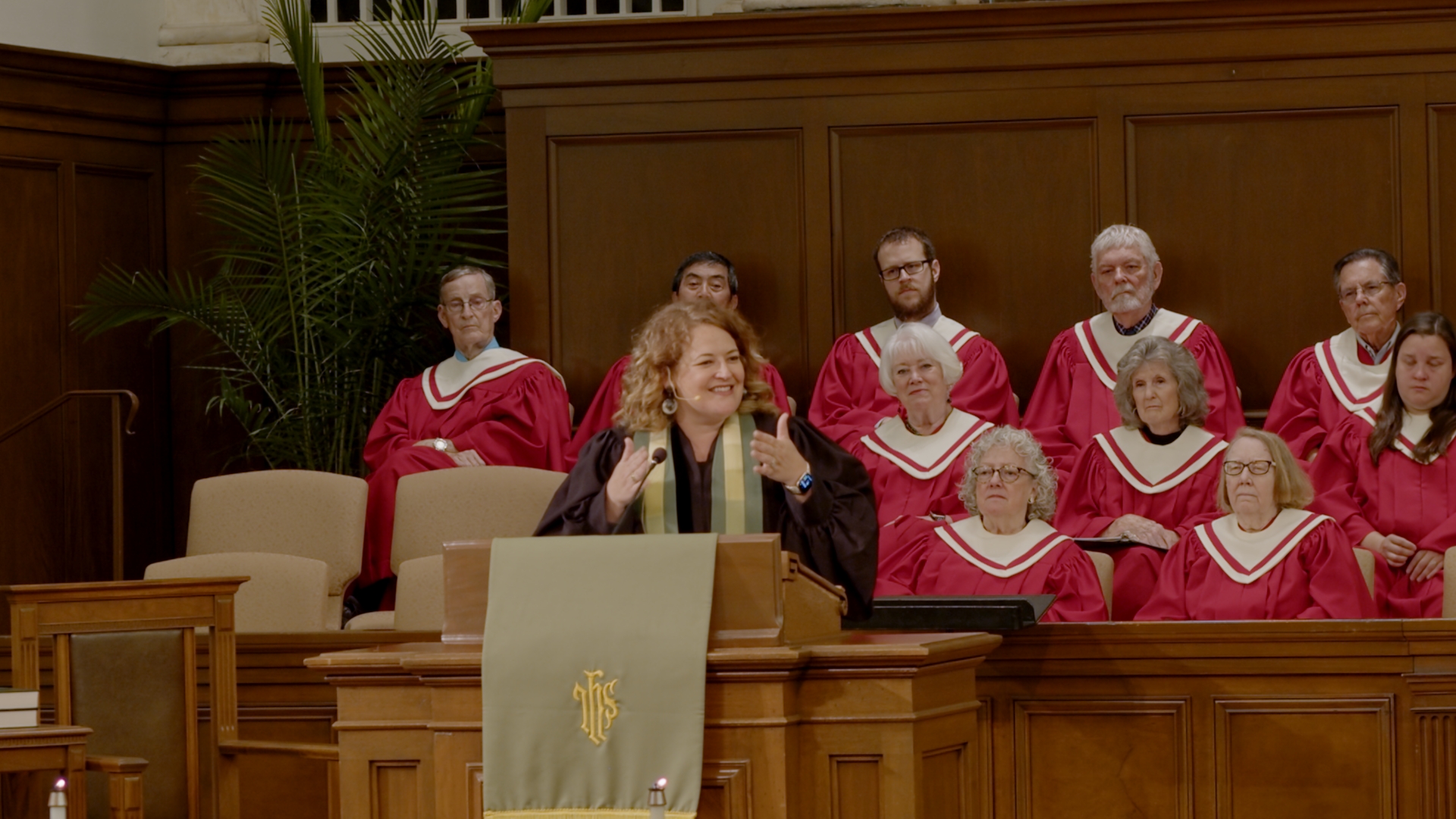I.Two summers ago, I experienced one of the great gifts of my life when you extended an invitation to me to take a sabbatical (as our Amy McClure is experiencing now!). A sabbatical, of course, is an extended period of time away from one’s job for the purpose of renewal. In my application for funding from the National Clergy Renewal Program, I described the past years of my personal and professional life: the change that punctuated every corner, the storms we’d navigated, the seasons of heartache and challenge and relief. And I confessed my temperament as one who too easily confuses what I do with who I am, one who can trick my brain into thinking that I’m worth what I can produce. I knew that the sabbaticals that generate a different type of work – like a book project, or developing a new program – while wonderful, wouldn’t stretch me the way I knew I needed. “What I need,” I told the good folks who grant money for clergy renewal, “is to practice delight.” Delight in the every day, delight through all the changing seasons of life, delight that spills over from restful practice into real life.
My dreams on paper so gratefully came to life: chasing waterfalls on the eastern shore of Maui, walking mile after mile on the Camino de Santiago in Spain, pure play with my kids on the beach, in the amusement parks, at the pool. It was a once in a lifetime summer, one that still – to this day – is teaching me the gifts and graces of living.
That summer, I decided not to plant our annual raised beds full of vegetables. We’d be traveling so much, I rationalized in my mind. I would hate for the cucumbers to rot unattended, or the okra to sprout too long and starchy to eat. We didn’t plant. Didn’t water. Didn’t tend. Didn’t even clean out the dead plants from the previous summer! Between trips, every time I passed those empty garden beds that looked like a wasteland in the backyard that summer, I felt a bit guilty. Unproductive. Slack. Maybe I should have figured it out, and pressed on ahead, and done the work, and planted anyways. That tends to be my m.o.!
So just imagine my utter delight on a regular afternoon stroll through the backyard late in July when I spotted pops of red in the leftover tangle of tomato plants I hadn’t yet pulled up from last summer. There were cherry tomatoes! I literally squealed and starting pulling them off the stalk (and popped a few in my mouth!). When I gathered them all, I had several overflowing handfuls of an unearned harvest. With my laboring mind at rest, I was able to see this delight clearly. I did nothing to earn them, no labor of mine brought those tomatoes to life, yet here they were: gift and grace that grew without my labor. It felt providential that those tomatoes were still ripe on my first day back at work.
II.In our summer weeks spent in the Gospel of Mark, we arrive at Mark chapter four, where Jesus shares parables for the first time. Two parables form our text for today: the parable of the growing seed and the parable of the mustard seed. The first is an oddity among the rest. Only found in the Gospel of Mark, this parable of the seed growing secretly has no accompanying application, no reflection, no ‘moral of the story’ that Jesus’s listeners would have been familiar with hearing. “The kingdom of God,” Jesus shares, “is as if someone scattered seed on the ground, then would sleep and rise and sleep and rise, and without his knowing or doing, without visible cause, without any human agency, the seed would sprout and grow as if by itself, automatically, out of its own power, from the earth.”1 Some scholars have asked: but what is the kingdom like?Is it the seed?Is it the process of growth?Is it the harvest?Is Jesus the sower?2I like Bernard Brandon Scott’s assessment best: “the land is on sabbatical.”3
The second parable is more familiar, found in Matthew, Mark, and Luke, this story that compares the kingdom of God to a mustard seed that grew into a great shrub in which birds of the air find their nest. Of all the rest, Mark uniquely makes sure the reader knows of the transition from smallest seed to greatest shrub. To Jesus’s hearers, the mustard plant would be a standard fixture in their gardens. First century Roman philosopher Pliny the Elder said of the mustard plant, that beyond its usefulness as a seasoning for food, mustard is “extremely beneficial for the health,” curing serpent bites and scorpion stings, acts as an antidote to fungi poison, help a toothache or stomach troubles or or leprous sores or an uptight bowel.” (Who knew!)4It clears the senses and, “due to its pungent taste, is unlikely to suggest transgression.” In brief, mustard plants are endlessly practical, precisely the kind of plants you want in your garden. In Jesus’s eyes, the mustard shrub becomes a place of rest for no less than the birds of the air.
III. Situated within the context of Jesus defying norms in his living, these two parables offer an intriguing consideration. When I preached about the mustard seed last fall, we were in a yearlong emphasis on tending. I encouraged us to tend the small things in our life, to give them our attention and time and energy and labor. Yet paired with the parable of the seed that grew in the dark and in light of the impact Jesus is making in Galilee, I think our takeaway is different today.
Sometimes as I study scripture, particularly the lessons of Jesus, I find it to be a helpful exercise to consider what Jesus did not say, in part to understand what he did.
In these two parables, let’s consider what Jesus didn’t say. For the first, Jesus didn’t say, “the kingdom of God is as if someone scattered seed on the ground, and day and night, she could hardly rest for all the work she did in that garden: digging, pruning, watering, tinkering, tut-tutting from sunup to sundown. When those seeds grew – and boy did they grow! – it was her efforting that made it possible. So too will it be with you who desire God’s kingdom here on earth. Get ready to work your tails off, and do the teaching, and help all the people, do all the good, and run circles around the committees, and make all the decisions, and raise all the money, and solve all the problems, and don’t miss a single opportunity to connect a human with God’s dream for this world, because the eternal well-being of it all lies on your laboring shoulders. Why are you just standing here?! Get busy!” And Jesus also didn’t say, “the kingdom of God is as if someone planted a tiny mustard seed which grew into a towering bush, all of which was useful! Useful and functional and practical and of service for the good of the world, but only if you scurry around to make it happen! There are scorpion bites that need attention! Pish posh to those who’d say this shrub is best known for those who rest in its shade. There’s a job to be done! Spit spot!”
You know, if we’re not careful, this modern American life would fool us into thinking that we’re indispensable, that nothing good can come unless we pull ourselves up from our bootstraps and make it happen, that the very best things in this life require our labor first. Even if that’s not the cognitive posture we take or awareness we bring to our living, the “Protestant work ethic” is baked into the DNA. It causes us anxiety, and stirs up our perfectionism, and demands our sacrifice, and shouts the lie that we are self-sufficient individuals just moving through our days and making things happen. One of you said to me recently that you’re working all the time for your job, and it’s making you feel like everything else in your life is work too! Your marriage, your kids, your community, your mental health, even your rest – just one more thing for the to do list. And as another of you said to me this week, “every time I’ve heard someone remind me to rest, I think to myself, ‘yeah yeah, but that’s for other people, not for me.”
Friends, I do believe that Jesus is inviting us to defy this norm of constant vigilance and constant diligence, and instead consider that some of the very best growth we’ll ever experience does not come from our hands and is not tied to our effort. Paul will later write to the church at Corinth and say, “I planted, Apollos watered, but God gave the growth.” God gave the growth! Not me, with my many years of education and fancy degrees and investments and the best organic soil I can find at the hardware store. Not you, with your wisdom and years of experience and earnest hope. God gave the growth. And even when there is growth, Jesus asks us to consider to what end we will experience the fruit. Not just to dissect it down to its most useful part, but rather to let it be, and let it be still, and let others find rest just as it is.
That a man sowed seeds was an afterthought in this parable. That the growth and fruition happened beyond his efforting mattered most. That a tiny mustard seed grew to a towering shrub was secondary here. That its most notable gift was not as something to use, but rather as a place to rest was transformative.
IV.There is a time for every season, let’s remember, and there will be seasons for planting, seasons for pruning, seasons for laboring, and seasons for tending, and seasons for harvesting. You heard Missy speak a few moments ago of the tending that Missy and Frances have done at Amani Sasa, and that took hard work, I’m sure! I think of our church, and each of you and lives you feel God calling you to live. But on this June morning, might we reach for the grace of an unearned handful of tomatoes? Might we consider that doing what is ours to do means that we do nothing at all? That there is indeed a season to leave it alone, to take our hand off the plow of that which demands our labor and let God be God, let God do what is God’s to do? Might we consider situations where our constant fiddling and worrying might be counterproductive, and find instead the path that allows us to get out of the way? Might we remember that sometimes the most useful thing we can offer to the world is not something we create or construct or cobble together, but rather is simply the chance to give God’s beautiful creatures a safe, comfortable place to rest?
V.As the story goes, a woman had a dream that she walked into a brand-new shop, and to her surprise, found God staffing the store behind the counter. “What do you sell here?,” she asked. “Everything your heart desires,” answered God. The woman could hardly believe her good fortune, and decided to ask for all the best things she could imagine. “I want peace of mind and love and happiness and wisdom and freedom from fear,” she rattled off – “oh, and not just for me,” she added, “for everyone on earth.”
God smiled, and said, “I think you’ve got me wrong, my dear. We don’t sell fruits here. Only seeds.”5
May those who have ears to hear, listen! Amen!







